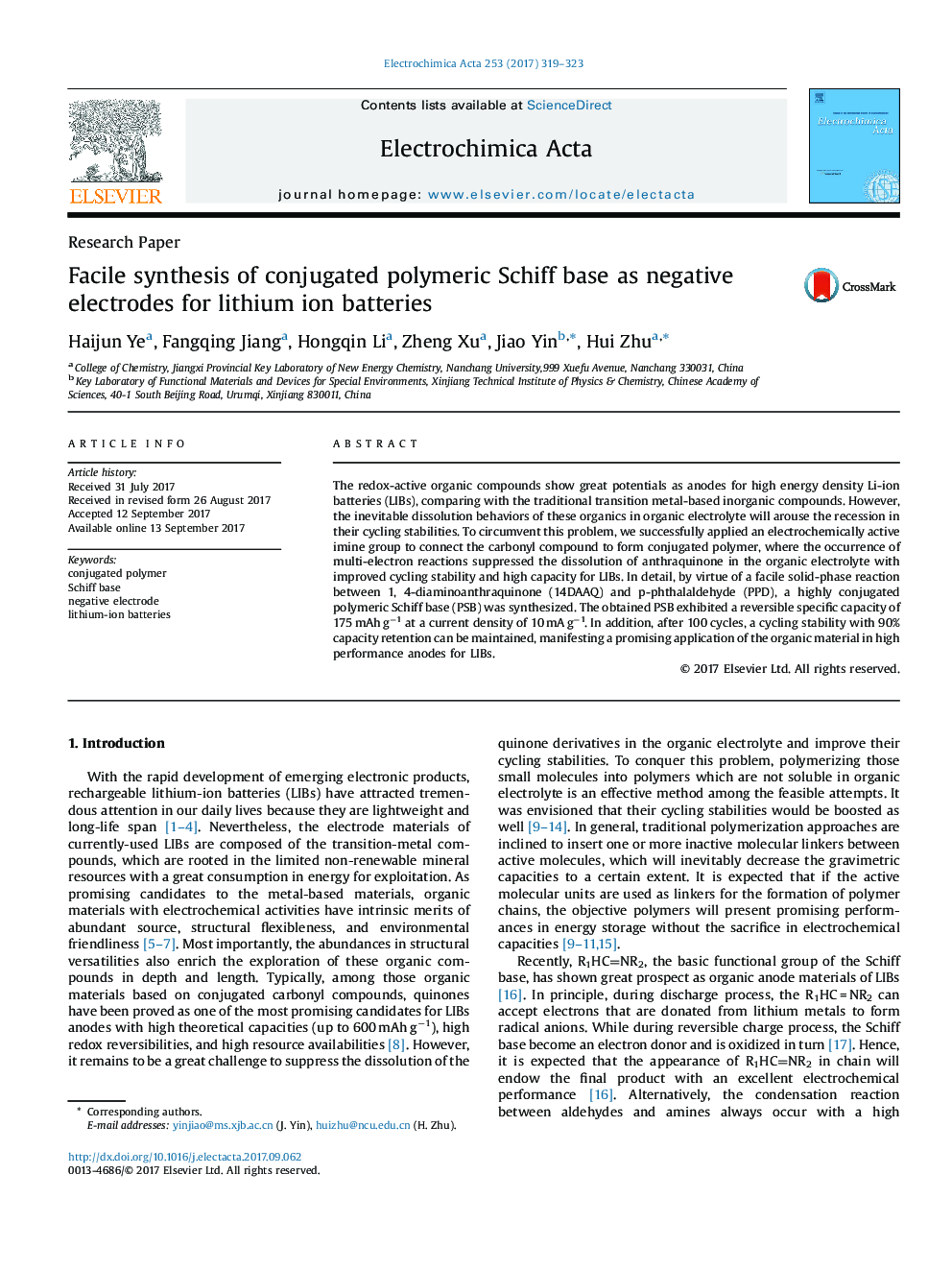| Article ID | Journal | Published Year | Pages | File Type |
|---|---|---|---|---|
| 6470117 | Electrochimica Acta | 2017 | 5 Pages |
â¢A conjugated Schiff base polymer has been synthesized by a solid-phase reaction.â¢The polymer suppresses the dissolution of organic monomer into the organic electrolyte.â¢The polymer demonstrates high reversible capacity and excellent cyclic performance.
The redox-active organic compounds show great potentials as anodes for high energy density Li-ion batteries (LIBs), comparing with the traditional transition metal-based inorganic compounds. However, the inevitable dissolution behaviors of these organics in organic electrolyte will arouse the recession in their cycling stabilities. To circumvent this problem, we successfully applied an electrochemically active imine group to connect the carbonyl compound to form conjugated polymer, where the occurrence of multi-electron reactions suppressed the dissolution of anthraquinone in the organic electrolyte with improved cycling stability and high capacity for LIBs. In detail, by virtue of a facile solid-phase reaction between 1, 4-diaminoanthraquinone (14DAAQ) and p-phthalaldehyde (PPD), a highly conjugated polymeric Schiff base (PSB) was synthesized. The obtained PSB exhibited a reversible specific capacity of 175 mAh gâ1 at a current density of 10 mA gâ1. In addition, after 100 cycles, a cycling stability with 90% capacity retention can be maintained, manifesting a promising application of the organic material in high performance anodes for LIBs.
Graphical abstractPolymeric Schiff base (PSB) exhibits a stable cyclability as an organic Li-ion battery anodeDownload high-res image (132KB)Download full-size image
